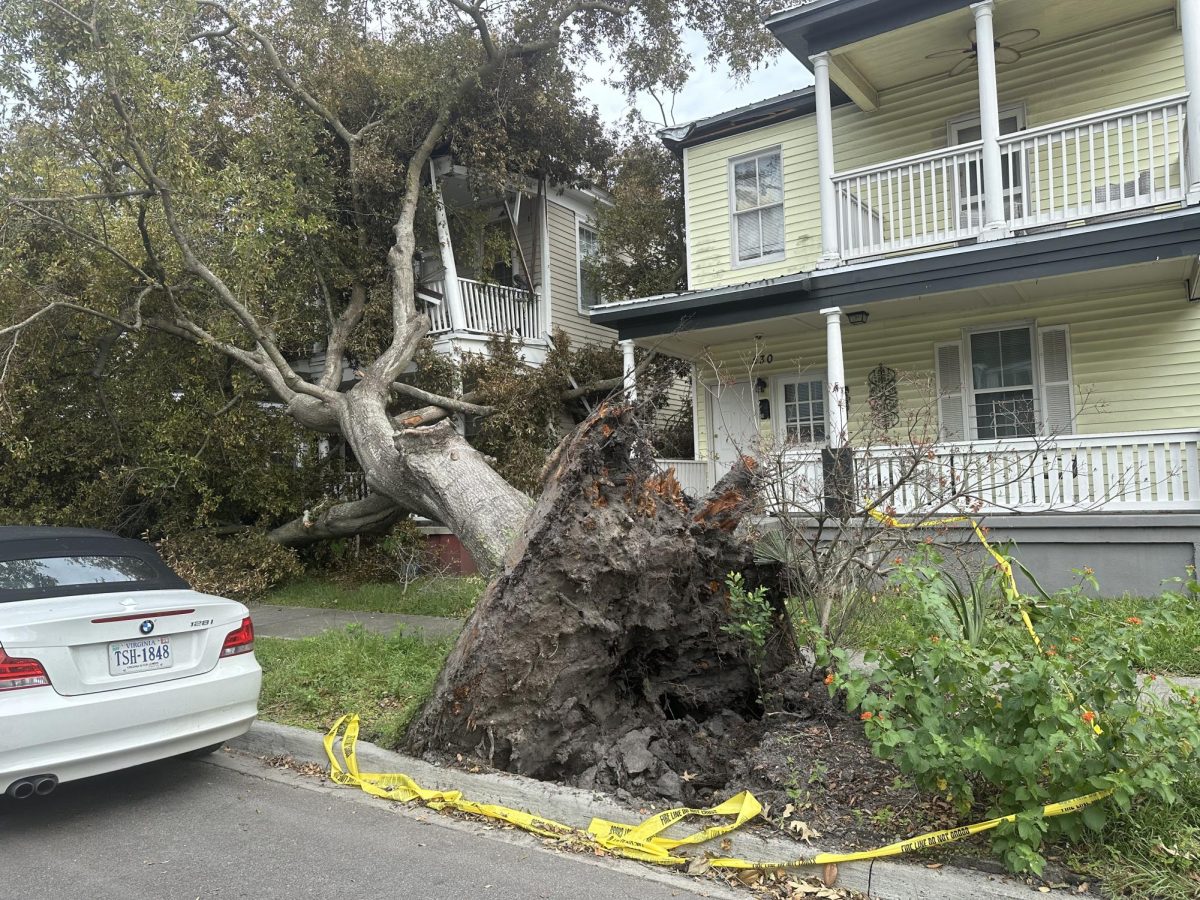Lucy Stone, News Editor
A “Sanctuary Campus” resolution was discussed at the most recent Faculty Senate meeting on Nov. 28.
There has been a recent push across the United States for colleges and universities to become “sanctuaries” for undocumented or immigrant students who are in fear of the President-Elect Donald Trump’s claims that he will deport millions of undocumented immigrants.
The meeting began with brief opening remarks from President Bleicken alluding to the resolution:
“Let’s pause before making statements that, crafted in haste, may contain inaccuracies, or that may respond or appear to respond to threats that have yet to materialize,” Bleicken said. One of the inaccuracies that Bleicken claimed is in the resolution is implementing de-escalation training with campus police, which is already occurring.
“Let’s continue to work together in a spirit of congeniality and transparency to meet whatever comes [. . .] with actions that are appropriate to the situation. Right now we don’t know what the situation will be,” Bleicken added.
In regards to the “Sanctuary Campus” resolution, Senate President Dr. Clifford Padgett explained that “due to some lack of information, we’re not 100 percent sure how to move forward with this.” Padgett proposed getting the University System of Georgia (USG) Faculty Council on board and getting other institutions to come together to do a full resolution.
“I was going to suggest we hold off on this until January,” Padgett added. “We don’t know how much support there will be from all the other schools, but [. . .] I know we would like to put in a united front.”
Senior Political Science major Marisol Estrada asked, “As an independent school, why can’t we support something like this? Why do we have to wait for all the other schools to agree?”
Padgett answered that Armstrong could potentially try to push this resolution, but that it would have more strength if it was recognized and pressured state-wide in the USG system.
“If it were that Armstrong was of only one or two campuses that felt strongly about this, would we be willing to move forward with it anyway?” asked Senior Liberal Studies major Michelle Ramos.
A member of the faculty commented reminding students that Armstrong is a state funded school and that the state legislature decides how much funding Armstrong receives.
He mentioned what happened at Georgia Tech this year when the university had an issue in its due process surrounding an expelled student. Tech was fined for millions of dollars “as a punishment for this due process discrepancy,” the faculty member said.
“The state legislature set a precedent for the type of [punishment] that could happen if things caught that they don’t like. So we want to be strategic about how we approach this. Not that we are going to just forget about it, but we need to be strategic and consider all of the factors,” he added.
He stressed the same action Padgett suggested in getting more Georgia schools on board as allies with this resolution, particularly the University of Georgia.
Padgett stated that some of what the resolution is asking for Armstrong to do is not within the school’s power, such as telling Armstrong PD “to refrain from collaborating with ICE (U.S. Immigration and Customs Enforcement) for the purposes of immigration enforcement.”
Padgett suggested that what concerned students can do in the meantime is visit the Registrar’s office and have themselves listed as confidential on the Armstrong directory. The confidential information would include name, address, major, enrollment status, activities, weight, height and hometown. However, if students chose to do this, their name would not appear in the graduation bullet list until they are added back into the directory. Also, pin numbers could only be reset in person if need be.
Dr. Elizabeth Desnoyers-Colas, representative from Armstrong in the USG Faculty Council, will contact the Faculty Council at its next meeting about the “Sanctuary Campus” resolution. Padgett will update the Faculty Senate on the resolution in the next meeting on Jan. 23, 2017.
To view a copy of the “Sanctuary Campus” resolution, click here sanctuary-resolution-senate .







